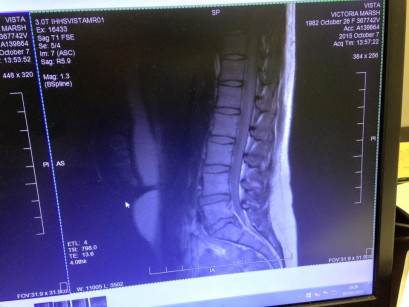
Before we get to how you get an MRI, first lets go over what they and why you might want one in the first place!
What is an MRI?
 MRI stands for magnetic resonance imaging. An MRI uses magnetism and radio waves to detailed pictures of the inside of the body.
MRI stands for magnetic resonance imaging. An MRI uses magnetism and radio waves to detailed pictures of the inside of the body.
The images show cross sections of the body. An MRI can show up soft tissues in the body very clearly (compared to an X-Ray which looks at bony structures). MRI can be used on most areas of the body. It is an expensive scan to take, and should only be considered when the diagnostics of an MRI are needed. Depending on your symptoms you may be offered an X-Ray or ultrasound first instead of an MRI.
What can be diagnosed on an MRI?
A wide range of conditions can be diagnosed using an MRI:
- most ailments of the brain, including tumours and dementias
- sports injuries
- musculoskeletal problems
- most spinal conditions/injuries
- vascular abnormalities
- female pelvic problems
- prostate problems
- some gastrointestinal tract conditions
- certain ear, nose and throat (ENT) conditions
- soft tissue and bone pathology/conditions
Who can’t have an MRI scan?
Because of the MASSIVE magnets used in an MRI there are a number of contraindications, situations where it’s not safe to get an MRI:
- a cardiac (heart) pacemaker
- certain clips in your head from brain operations, i.e. aneurysm clips
- a cochlear (ear) implant
- a metallic foreign body in your eye
- had surgery in the last 8 weeks
- a programmable shunt for hydrocephalus (fluid on the brain)
- if you are pregnant
How to get an MRI?
When it comes to getting an MRI, there are three main options:
- A referral through an NHS consultant for free
- A referral through private consultant which costs £600+
- An immediate MRI, but with no consultant appt from £200+
The most popular, and safest, options are the first two. You are under the care of a specialist consultant meaning that if anything is found on your MRI they are best placed to advise on your treatment. Although the two private options are perhaps more reliable – as you are self-funding/paying – remember that in both instances, an MRI is not guaranteed; if your consultant doesn’t deem it necessary or appropriate, they have the authority to say no.
